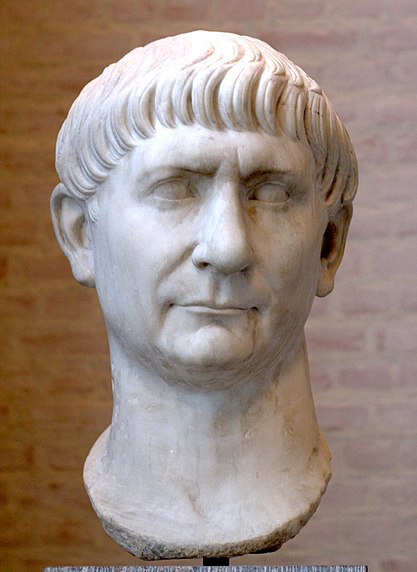
Posted on 12/23/2008 8:49:08 AM PST by BGHater
An important discovery of more than 100 Roman coins has left archaeologists wondering whether Petworth has more to do with the Romans than first thought. The 103 coins, which equate to a third of a year's wages for a Roman soldier, were found on farmland in the area on November 24.
Experts have previously believed Petworth to have been little affected by the Romans, but the discovery of the silver coins could mean there were wealthy people living there.
The coins date from the third and second century BC to the Hadrian period of 132 to 148AD.
Sussex Archaeological Society finds liaison officer Laura Burnett said: "There is a reasonable amount of money – it is not what your average person had.
"It definitely shows there were people with some money in that area, it was not just a charcoal burner.
"It is always very exciting finding things. What is really interesting is thinking that this area we thought was quiet, is suddenly becoming more important.
"We will need to do more investigating to see whether there are any signs of habitation, to see if there is any evidence of roads, or farm remains.
"If each of the coins weighs three to four grams, we are looking at more than 300 grams worth of silver."
Kirdford resident Malcolm Douglas made the find just a after a year after he first began searching the fields of Keyfox farm.
The 43-year-old said: "It is nice to find a hoard, but it makes you wonder – the last person to see those coins was the person who buried them. That's nearly 2,000 years ago.
"It would have been nice to meet him, to find out why he buried them and to find out if he buried any more.
"It felt like I had just found a pot of gold – it was overwhelming. If you look at a rough statistic, 99 per cent of detectors never find a hoard of anything."
The coins were found buried several inches beneath the soil with a piece of Roman pottery. Miss Burnett has several theories about why they could have been left there.
"They buried them to keep them safe because there were no banks," she said.
"People may have buried them if there was a farm nearby. Rather than leave the horde in the house where people would look for it, they would bury it outside.
"If you were travelling through the woods carrying it on you, rather than take it with you to an inn you would bury it outside.
"Sometimes it is long-term and sometimes short-term."
Chichester museum archaeology officer Jayne Stewart said: "We have shown interest in acquiring this treasure case as it is a very significant find for the area and for our Roman collection.
"The hoard from Petworth will make a great addition to our collections."
A valuation of the collection will be made within the next couple of months.
* Miss Burnett will be doing a valuation of archaeological artefacts on January 24 at Chichester museum, Little London from 10am until 1pm.

Hadrian ping.
They buried them because taxes were confiscatory and treasury bills were yielding 0%.
Hey, wait a minute.....
In England, the coins found on private property, now belong to the state. In America, you find old forgotten buried coins inyour field, You own them.
Just *another* reason why.
Never give up our guns.
Trajan88 gives this thread a thumb's up ;-)

|
|
|||
Gods |
Thanks BGHater. |
||
|
· Discover · Nat Geographic · Texas AM Anthro News · Yahoo Anthro & Archaeo · · The Archaeology Channel · Excerpt, or Link only? · cgk's list of ping lists · |
|||
Nonsense. The Romans had an extensive banking system. If the former owner were a soldier, well, the Legions had their own arrangements with banks to help soldiers save money for retirement.
There is another reason why the money may have been buried. Perhaps it was stolen, and the thief was hiding his stash.
Disclaimer: Opinions posted on Free Republic are those of the individual posters and do not necessarily represent the opinion of Free Republic or its management. All materials posted herein are protected by copyright law and the exemption for fair use of copyrighted works.